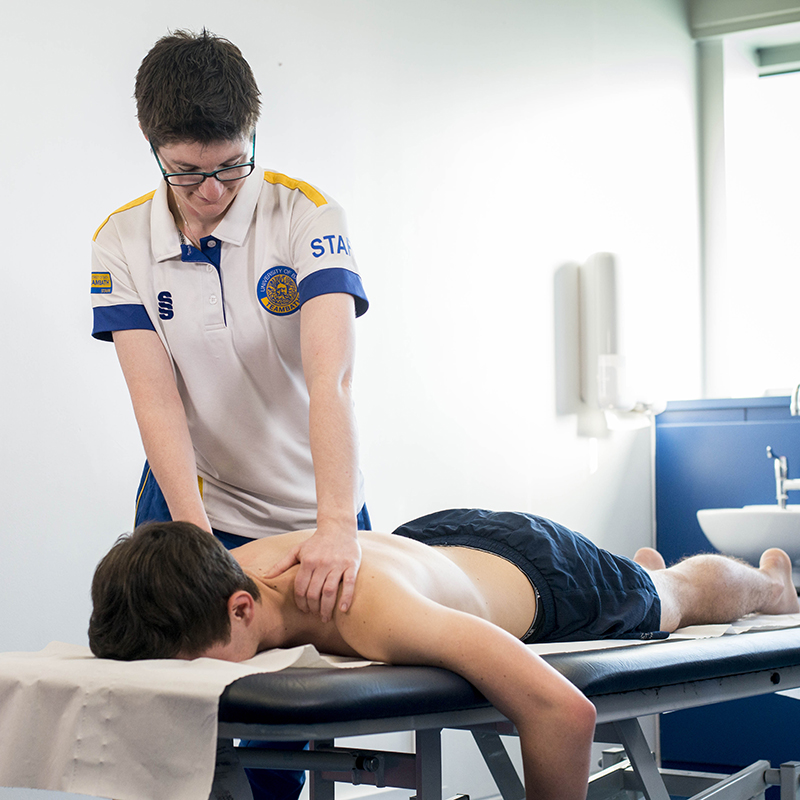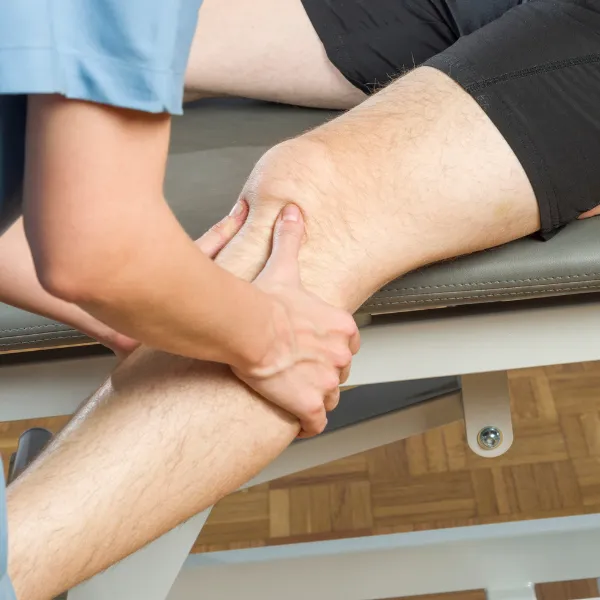I. Education and Certification

A career in sports therapy begins with a strong educational foundation. Individuals aspiring to become sports therapists should first obtain a bachelor’s degree in a related field such as kinesiology, exercise science, or athletic training. These undergraduate programs provide foundational knowledge in anatomy, physiology, and exercise physiology, all of which are essential in understanding the human body’s response to physical activity and injury.
Once a bachelor’s degree is secured, the next step is pursuing a master’s degree in sports therapy or a related field. A master’s program allows individuals to delve deeper into sports-specific injury management, rehabilitation techniques, and performance enhancement strategies.
In addition to academic degrees, obtaining relevant certifications is crucial for aspiring sports therapists. Certifications such as Certified Strength and Conditioning Specialist (CSCS), Athletic Trainer Certified (ATC), and Corrective Exercise Specialist (CES) provide validation of expertise in the field and enhance job opportunities.
II. Gain Practical Experience
Practical experience is a crucial component in preparing for a career in sports therapy. This can be achieved through various avenues, including completing an internship or clinical experience in a sports therapy setting. Practical application of theoretical knowledge in a real-world setting is invaluable in developing the necessary skills for working with athletes and individuals seeking to improve their physical performance.
Volunteering with sports teams or athletic organizations also provides valuable exposure to the dynamics of sports and the unique challenges athletes face. This experience not only allows for hands-on learning but also cultivates an understanding of the athlete’s mindset, work ethic, and the demands of different sports.
Seeking out mentorship opportunities with experienced sports therapist can provide invaluable guidance and insights. Mentors can offer advice, share their professional experiences, and provide support in navigating the nuances of the field. Learning from seasoned professionals can be instrumental in shaping one’s approach to sports therapy and career development.
III. Develop Specialized Skills
a. Learn about sports-specific injuries and rehabilitation techniques
One of the most important specialized skills for a sports therapist is a deep understanding of sports-specific injuries and rehabilitation techniques. Sports therapists need to be knowledgeable about the types of injuries common in different sports, such as ACL tears in soccer or shoulder injuries in baseball. Understanding these specific injuries allows therapists to develop targeted rehabilitation programs to help athletes recover and return to peak performance.
To develop these skills, sports therapists should seek out additional training and educational opportunities focused on sports-specific injuries and rehabilitation. This may include attending workshops or seminars, pursuing advanced certifications, or completing specialized coursework in areas such as sports medicine or athletic training.
b. Acquire knowledge of sports performance enhancement strategies
In addition to rehabilitation techniques, sports therapist should also have a solid understanding of sports performance enhancement strategies. This includes knowledge of strength and conditioning principles, as well as techniques for improving athletic performance and reducing the risk of injury. Developing expertise in this area allows sports therapist to offer comprehensive support to athletes, helping them not only recover from injury but also optimize their performance on the field or court.
c. Stay updated on the latest research and developments in sports therapy
To truly excel as a sports therapist, it’s essential to stay updated on the latest research and developments in the field of sports therapy. This can include staying informed about new treatment techniques, advancements in rehabilitation protocols, and emerging trends in sports medicine. By staying abreast of the latest developments, sports therapists can ensure that they are providing the most effective and cutting-edge care to their clients.
IV. Build a Professional Network

Building a professional network is crucial for sports therapists seeking to advance their careers. One way to do this is by attending conferences, workshops, and seminars related to sports therapy. These events provide valuable opportunities to connect with other professionals in the field, learn from experts, and stay current on trends and best practices in sports therapy.
b. Join professional organizations such as the National Athletic Trainers’ Association
Joining professional organizations such as the National Athletic Trainers’ Association (NATA) can also be beneficial for sports therapists. These organizations offer opportunities for professional development, networking, and advocacy within the sports therapy field. They may also provide access to valuable resources, such as research publications, continuing education opportunities, and job postings.
c. Connect with sports medicine professionals, coaches, and athletes
Building a strong professional network also involves forming connections with other sports medicine professionals, coaches, and athletes. This can be done through networking events, professional organizations, and social media. By connecting with individuals across the sports industry, sports therapists can gain valuable insights, forge collaborations, and enhance their professional reputations.
V. Obtain Licensure
-
Research the licensure requirements in your state or country
The first step in obtaining licensure is to research the specific requirements in your state or country. Each jurisdiction has its own set of regulations and requirements for obtaining licensure in a particular profession. This typically involves meeting specific educational and experiential requirements, as well as passing any necessary examinations or practical assessments.
In the United States, licensure requirements can vary widely from state to state. For example, a psychologist seeking licensure will need to adhere to the requirements set forth by the state board of psychology in the state where they plan to practice. This may include completing a doctoral degree in psychology, obtaining a certain number of supervised clinical hours.
-
Complete any necessary exams or practical assessments
Once you have identified the specific licensure requirements for your profession and location, the next step is to complete any necessary exams or practical assessments. These assessments are designed to ensure that individuals seeking licensure have the knowledge and skills necessary to practice safely and effectively.
-
Maintain licensure through continuing education and professional development
Obtaining licensure is not the end of the process – it is just the beginning. Once you have obtained licensure in your profession, it is essential to maintain it through continuing education and professional development. This ensures that you stay current with the latest advancements in your field and continue to provide high-quality services to your clients or patients.
Continuing education requirements can vary depending on the specific licensure board and profession. For example, licensed social workers in the United States are typically required to complete a certain number of continuing education hours each renewal period to maintain their licensure. This may involve attending workshops, seminars, or courses that are relevant to their practice.
VI. Pursue Career Opportunities
After acquiring the necessary qualifications and licensure, the next phase involves seeking and exploring various career prospects in the field of sports therapy.
a. Applying for positions at sports medicine clinics, physical therapy practices, or sports teams is an initial step in launching a career in sports therapy. These settings provide opportunities to work with diverse populations of athletes, from recreational to elite levels, and contribute to the overall wellbeing and performance of individuals engaged in sports and physical activities.
b. Considering starting your own sports therapy practice or consulting business is an entrepreneurial path some sports therapists may choose. Establishing a private practice allows for autonomy in delivering specialized services, creating tailored rehabilitation programs, and providing personalized care to clients. Similarly, offering consulting services to sports organizations, fitness centers, or wellness facilities can be a rewarding avenue for leveraging expertise in sports therapy.
c. Continuously seeking out opportunities for career advancement and growth is vital for professional development. This may involve pursuing advanced certifications, specializations in specific sports or areas of sports therapy. Seeking out mentorship, engaging in research, and contributing to the advancement of the field are ways to expand expertise and make meaningful contributions to the sports therapy profession.
In conclusion, obtaining licensure is a critical step for professionals in many fields. It demonstrates a commitment to meeting established standards and a dedication to ongoing professional development.


